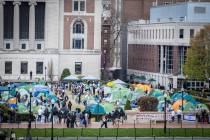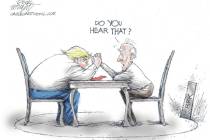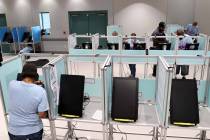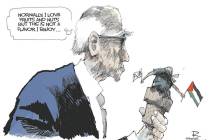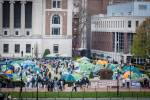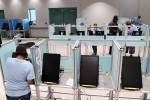Preserving universities’ diversity of scholarship
My most terrifying experience in 40 years of journalism was being assigned to cover a particle-physics conference at the University of Rochester.
A 20-year-old summer intern, I never even had stumbled into a physics class by mistake. The language, the issues, the personalities were all new to me -- though I knew enough to be impressed at having the chance to interview Dr. Edward Teller, whose name always appeared with the descriptor "father of the hydrogen bomb." (The only problem: I had nothing intelligent to ask him.)
Years later, when I became a member of the council that accredits journalism schools, I remembered that experience. As a result, like most other journalism educators, I support tough limits on the number of journalism courses our students can take and instead argue for heavy doses of classes in other fields. That sounds counter-intuitive for a journalism dean, but our students never know when they will be assigned to cover, say, a physics conference as reporters or marketing specialists.
As the state budget conflagration moves slowly toward a resolution, my school, the University of Nevada, Reno, wisely has decided to cut selectively rather than across the board. Even with that important decision made, I worry Nevadans will forget the concept of the university and give in to concerns about individual disciplines.
In fact, a university is bigger than its many departments, schools and colleges. As the Encyclopedia Britannica points out, "university" came from Latin words meaning "a community of teachers and scholars." It is the community issue that so few people understand during budget catastrophes.
Take journalism students. Under our accrediting rules (ours is the only accredited journalism school in Nevada), they are required to take 80 of their 128 credits outside of the School of Journalism. In fact, 65 credits must be in "the liberal arts and sciences." The idea is to give students a taste of many disciplines so that they can write intelligently about almost anything. (Or, if they're interested in one piece of the arts and sciences, they can take substantial credits in that field and become specialists. The primary requirement is that most credits be earned outside of journalism.)
Of course, breadth works both ways. In the elevator the other night, a science major told me he might come by to talk about a second major, journalism, or just some journalism courses. "Not many scientists can write like journalists," he said.
At our university, a variety of professors have told me recently we should require journalism students to study statistics. (Ironically, only a few journalists covering state budget issues have thought to measure the percentage of state debt against the state budget, one of the most important calculations. I'm convinced the reason is that so few journalism students study statistics. Nevada's debt is around half of its budget, the highest figure in the nation.)
Our universities are unique not because they're the University of Journalism or the University of Business. What makes them special, as ancient educators realized, is that they're a community of teachers and scholars from many fields of study. Saving only our favorites is perilous.
Jerry Ceppos is dean of the Reynolds School of Journalism at the University of Nevada, Reno.








